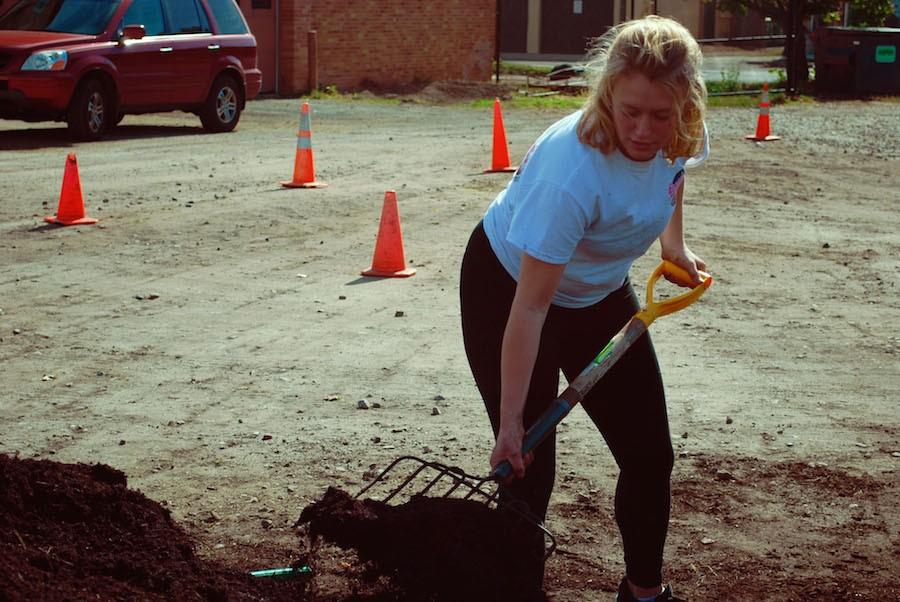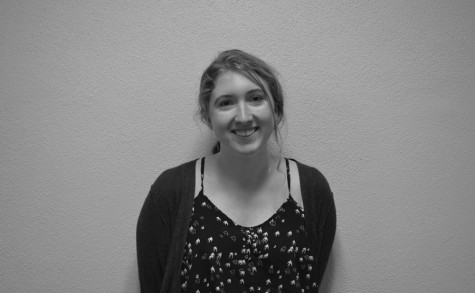Club starts hands-on learning for freshman course
Demo aquaponics system begins construction
Picking up compost: Junior Sofia Roloff moves compost to sell at the Roots and Shoots compost fundraiser Oct. 10. The club raised around $1,200 to build an aquaponics system. The aquaponics system will provide hands-on, interactive learning for Wachutka’s students.
November 12, 2015
Junior Owen Geier said he believes a demo aquaponics system, a combination of hydroponics and aquaculture, built by Roots and Shoots, may spark interest in environmental studies and further educate students.
The aquaponics system acts as a starting point for the club’s future projects, as well as a learning tool for in-class activities, according to Geier.
“Our main reason why we wanted to do a system in Wachutka’s room is to show that we can actually do things, so in the future we can do even bigger projects, which is our main goal,” Geier said.
Adviser Al Wachutka said he likes the idea of using aquaponics because it teaches through a hands-on system and engages the students.
“It would just be cool to have, because living things are fun,” Wachutka said. “What you have there is almost a complete
ecosystem enclosed, so it’s great for looking at for an example of cycling of nutrients.”
Freshman Claudia Stone said the aquaponics systems would change her learning through firsthand experience and by being more engaging.
“I would really like to have an aquaponics system in the classroom,” Stone said. “It’s a new way of learning that is less boring than just reading a textbook.”
Geier said the system would work as a fresh and new way of looking at environmental aquaponics systems.
“Mr. Wachutka will be able to use it in some form of teaching kids,” Geier said. “It’s a nice hands-on learning tool, instead of looking at diagrams.”
Roots and Shoots raised around $1,200 to build the aquaponics system at the club’s Oct. 10-11 compost fundraiser, according to Geier.
The club plans to build a demo system as soon as possible, according to Wachutka.
“Construction will start as soon as I have a weekend day and Owen Geier has a weekend day that neither of us are busy,” Wachutka said. “It’s just a matter of organizing and getting our time figured out.”
Geier said the aquaponics system is beneficial to Park because it produces edible plants such as lettuce, tomatoes, rosemary and other herbs.
“The food we produce can go to the Bird feeder. I have a pressure canner so we could can foods and give them to STEP,” Geier said. “It will benefit students by helping them learn.”




